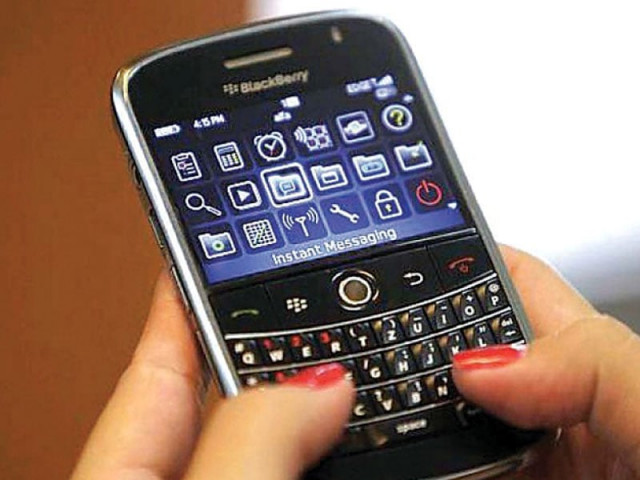Slowdown: Telecom sector looks inward for growth
As subscriber base reaches saturation point, telcos focus on inactive subscriber.

Warid Telecom alone is getting approximately 8,500 subscribers daily back to their network with different advertising and promotion activities. The number even crossed the 10,000 mark, if we count the number from their most recent campaign, according to sources. PHOTO: FILE
Telecom companies operating in Pakistan these days are neck and neck, locked in competition with each other. Industry experts believe that the telecom subscriber base has now reached a point of saturation.
There are a lot of hopes pinned on the future, especially for the upcoming Third Generation (3G) auction, which will move things forward for them but for the time being these companies are working hard to get the maximum number of subscribers back to their network. To achieve this, each telecom company is increasingly concentrating more on getting inactive subscribers back on their networks through direct or indirect offers.
Pakistan’s telecom industry witnessed massive growth in last 10 years. In the earlier stages of mobile revolution in Pakistan, having a mobile set and a SIM was more of a status symbol, but as more and more telecom companies entered in market especially after 2004, the status symbol turned into a dire need. The real battle between Telco’s started after 2005; mobile SIMs were easily accessible at low prices to the general public without proper verifications. Every mobile user at that time had more than one SIM from different mobile networks.

As the law and order situation started worsening in Pakistan, Pakistan Telecommunication Authority tightened the connection issuance policy which slowed the increasing number of new mobile connections. Many unsubscribed their extra connections and blocked those SIMs which were issued at their names without their knowledge.
Now that mobile subscriber base in Pakistan has reached 125 million connections, the five telecom companies operating are focusing more on getting inactive subscribers back to their network, through various different attractive campaigns, which offer the subscribers free minutes, SMS and internet bundles and much more.
Industry experts believe that the growth rate of new mobile connections has slowed down; such campaigns are an alternate solution to get maximum subscribers on the network.
Here’s an example of one such campaign. Warid Telecom alone is getting approximately 8,500 subscribers daily back to their network with different advertising and promotion activities. The number even crossed the 10,000 mark, if we count the number from their most recent campaign, according to sources.
“Telco’s rely on reactivation campaigns for two primary purposes: revenue stabilisation and retention of subscribers in order for late commercial offers to be more lucrative”, said Sadaf Zarrar, Director Marketing and Communication Warid Telecom.
For telecom companies, despite reactivation on the network, a customer is considered to breakeven when he or she spends at least 180 days on their network.
But the Telco’s face another issue− churning of connections. This means that if a customer has multiple SIMS and he or she uses these connections regularly whenever a particular telco offers competitive campaign.
According to industry sources all Telco’s face a churn rate of roughly 18-20% of the total industry base. Out of this rate, approximately 55-60% of subscribers churn before the 180 day break even period.
Reactivation campaigns help bring new/inactive subscribers back on the telco’s network and reduce the gap between churn customers, trying to reactivate as many as possible to minimise the loss from customers who churn, and hold the customers for 180 days at least.
Published in The Express Tribune, October 19th, 2013.
Like Business on Facebook, follow @TribuneBiz on Twitter to stay informed and join in the conversation.



















COMMENTS
Comments are moderated and generally will be posted if they are on-topic and not abusive.
For more information, please see our Comments FAQ